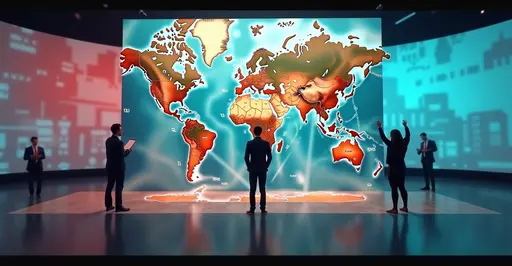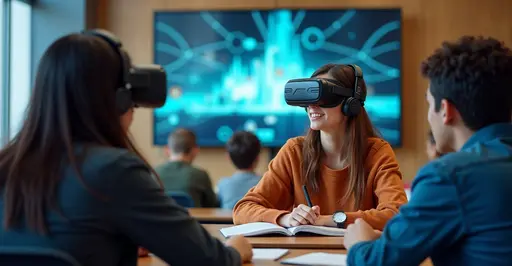Virtual reality tourism is booming, with the market projected to reach $29B by 2035. Travel agencies now offer immersive VR destination previews, while new tech enables multi-sensory virtual exploration.

The Virtual Travel Revolution
Virtual reality tourism is transforming how we explore the world. Travel agencies now offer immersive VR previews of destinations, letting travelers experience everything from Parisian cafes to African safaris before booking. This innovation combines 360-degree videos, interactive elements, and realistic sensory details to create authentic-feeling travel experiences.
How It Works
Using VR headsets and motion sensors, users can walk through digital replicas of real locations. Advanced systems incorporate temperature changes, ambient sounds, and even scent simulations. Companies like Wander and YouVisit create detailed virtual environments that respond to user movements, while AI-powered guides provide real-time information about points of interest.
Market Explosion
According to Future Market Insights, the global virtual tourism market hit $14.2 billion in 2025 and is projected to reach $29.1 billion by 2035. This 7.4% annual growth stems from:
- Demand for accessible travel from younger generations
- Sustainable tourism alternatives
- Improved VR hardware affordability
- Post-pandemic interest in contactless experiences
Regional Leaders
North America currently dominates the market thanks to tech giants like Google Earth VR and Meta's Oculus platforms. Europe leverages its cultural heritage through virtual museum tours, while Asia-Pacific shows the fastest growth. South Korea's 5G-enabled VR tourism platforms allow real-time interaction with global landmarks.
Beyond Vacation Planning
Virtual tourism isn't just for previewing trips. Educational institutions use VR to take students on historical recreations, while corporations employ virtual team-building exercises in exotic locations. Medical facilities even utilize calming VR environments for therapy and pain management.
Challenges Ahead
Despite rapid growth, the industry faces hurdles. Creating high-quality content remains expensive, and some travelers question whether digital experiences can replicate authentic emotional connections. Privacy concerns also emerge as platforms collect detailed user behavior data.
The Future of Exploration
Upcoming innovations promise even more immersive experiences:
- Haptic suits providing touch sensations
- AI-generated personalized itineraries
- Blockchain-secured digital travel passports
- Metaverse integration creating persistent virtual destinations
As Expedia Group's VP of Innovation noted: "We're not replacing physical travel but enhancing it. Virtual previews help travelers make informed choices while offering new accessibility."

 Nederlands
Nederlands English
English Français
Français Deutsch
Deutsch Español
Español Português
Português






